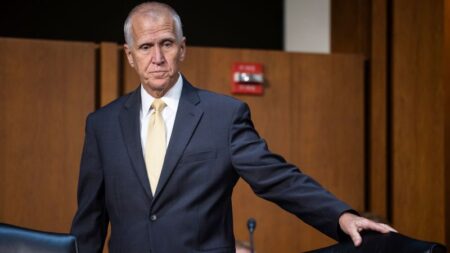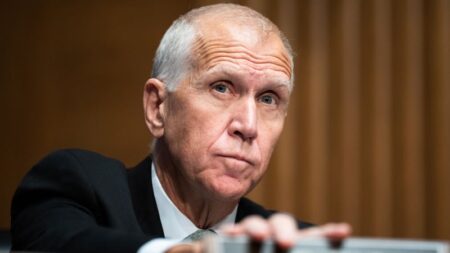In a rapidly evolving political landscape, the British government is poised to unveil further details regarding concessions made concerning significant welfare reforms. This is part of an effort to address a brewing rebellion among Labour Members of Parliament (MPs). Work and Pensions Secretary Liz Kendall has emphasized the government’s commitment to create a “fairer, more compassionate” benefits system as the vote on these proposed reforms approaches on Tuesday.
Just last week, Prime Minister Sir Keir Starmer was compelled to perform a notable U-turn in response to more than 120 Labour MPs threatening to oppose his welfare reforms. This shift in strategy indicates the considerable resistance within the party, reflective of broader concerns about the potential impacts on vulnerable demographics. As a result of this turmoil, the government has had to reassess its financial projections; the anticipated savings from the welfare reforms have now been downgraded from an ambitious £5 billion to a more modest £2 billion by the year 2030.
In response to the escalating dissent, Conservative critics have accused the government of squandering a vital opportunity to initiate substantial welfare reforms. They have specifically targeted cuts to mental health benefits, suggesting that these should be limited only to the most severe cases. The original proposals for welfare reform included controversial measures aimed at restricting the eligibility criteria for the Personal Independence Payment (PIP) and reducing the health-related element of Universal Credit, which have irked many within the political arena.
Facing mounting pressure, 126 Labour backbenchers have signed an amendment that would halt the reform bill at its initial stage, arguing that the proposals were rushed and would disproportionately disadvantage disabled individuals, potentially pushing them into poverty. In light of the impending vote, Starmer has extended significant concessions, such as proposing to limit PIP cuts to new claimants exclusively, thus protecting current recipients from immediate adverse impacts.
Moreover, the government has backtracked on plans to freeze the health-related component of Universal Credit. Instead, this benefit will now be adjusted in accordance with inflation for those already receiving it. As part of the government’s attempt to reassure MPs, they will also be presenting the details of a review regarding the PIP assessment process, which will be led by disabilities minister Sir Stephen Timms in collaboration with representatives from the disabled community.
Despite these adjustments, there remains substantial skepticism among some Labour MPs regarding the impending benefit changes, with doubts persisting just days before the crucial vote. Clive Efford, the MP for Eltham and Chislehurst, publicly voiced his ongoing concerns about the government’s plans. He stated that while there have been concessions, he has not changed his stance against the proposed measures, emphasizing the need to understand potential poverty impacts before proceeding with what he sees as a risky initiative.
Efforts to quell dissent continued through the weekend, with discussions aimed at garnering support from uncertain Labour MPs ahead of Tuesday’s second reading of the new legislation, dubbed the Universal Credit and Personal Independence Payment Bill. Secretary Kendall articulated the necessity of constructing a welfare system that provides stability for those unable to work while also offering appropriate support for those who are capable of employment. She highlighted the fears that disabled individuals encounter when attempting to engage with the workforce, stating that current systems often trap them in disadvantages.
In parallel, the Liberal Democrats have made it clear that they will oppose the bill, asserting their inability to support measures that could further complicate the lives of unpaid caregivers, disabled individuals relying on daily support, and those disabilities that preclude them from working. Deputy leader Daisy Cooper has called for swifter government initiatives aimed at assisting people in entering the job market.
The government’s overarching goal with these reforms is to enhance employment levels among welfare recipients—a crucial issue as about 2.8 million individuals remain economically inactive due to long-term sickness. If left unaddressed, health and disability benefits costs are forecast to soar to an unsustainable £70 billion annually by the end of the decade. The stakes are high, as the government seeks not only to appease internal factions but also to manage the broader implications of these welfare reforms.











